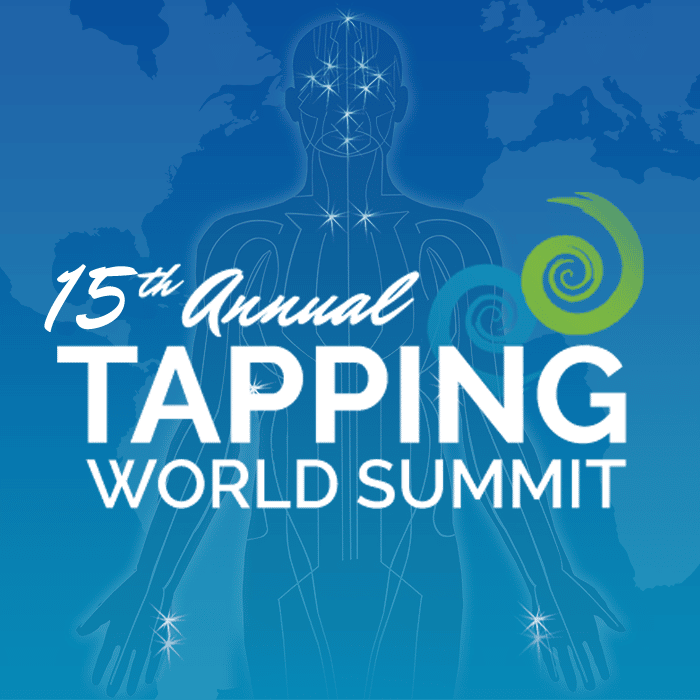When it comes to holistic healing methods, there’s often skepticism. Emotional Freedom Techniques (EFT), also known as Tapping, has gained significant popularity as a holistic approach to managing stress, anxiety, and various emotional challenges. However, with its rise in prominence, some skeptics have raised concerns about its efficacy and safety.
These concerns might have left you feeling wary, confused, or even scared to try EFT Tapping. After all, when it comes to your mental and emotional wellbeing, you want to be sure you’re making the right choices.
If you’ve heard someone explain why Tapping should be avoided, you might be wondering: Are these rumors true? Is EFT Tapping really something to steer clear of, or is there more to the story?
Despite what critics might say, there’s a growing body of evidence that shows EFT (Emotional Freedom Techniques) EFT Tapping is not only safe but also highly effective for a range of issues, including anxiety, stress relief, and even physical pain.
This article will dive deep into the misunderstandings surrounding EFT Tapping, explaining its core principles and using science to debunk the myths.
Understanding EFT Tapping (aka Emotional Freedom Techniques)
Before we explore why some believe EFT Tapping should be avoided, it’s important to understand what EFT Tapping actually is.
Also known as EFT (Emotional Freedom Techniques), Tapping is a powerful stress relief technique based on the combined principles of ancient Chinese acupressure and modern psychology.
EFT Tapping is a set of techniques which utilize the body’s energy meridian points (from Chinese medicine practices). You stimulate these acupoints by tapping on them with your fingertips.
Tapping on these meridian points (the same used in acupuncture and acupressure) while you think about what is distressing you helps your mind understand that you are not in any physical danger and it is safe to relax, reducing cortisol levels.
The theory behind this technique is that tapping on the points sends calming signals to the brain, helping to regulate the nervous system, turn down the stress response, and help people to better process and manage emotions.
It’s like acupuncture without the needles, mixed with a dash of psychology.
But skeptics argue that the method lacks evidence. So, is there any scientific backing behind EFT Tapping, or is it all pseudoscience?
Want a deeper dive into EFT Tapping? Check out this complete guide that covers the Tapping basics.
5 False claims about why Tapping should be avoided
Let’s take a closer look at why some people claim EFT Tapping should be avoided and what the evidence really says.
Claim #1: “It’s not supported by science. Any benefits are probably just the placebo effect.”
This is perhaps the most common concern, and it’s an important one. We should always seek evidence for health claims. So, are claims that EFT Tapping is pseudoscience true or not? Does it actually work, and is there research to back it up?
The truth:
Contrary to what many people think, there’s a growing body of scientific research supporting EFT Tapping. In fact, there are now more than 300 studies on the subject, suggesting it can be effective for a wide range of different concerns.
Here are just some of the findings published in scientific journals:
- Stress. A 2020 study found that just one hour of EFT Tapping led to a 43% decrease in cortisol levels (the stress hormone).[1]
- Anxiety. A systematic review and meta-analysis of studies on EFT Tapping for anxiety suggested that it leads to significant reductions in anxiety scores.[2]
- Depression. A review study from 2016 found that EFT Tapping was as effective, if not better than, standard depression treatments like medications and therapy. The results of the study showed an average reduction in symptoms of 41% when using EFT Tapping for depression.[3]
- Sleep. A study in lawyers with sleep disorders found EFT Tapping to help improve sleep, and another study in older people found it to be effective for treating insomnia.[4,5]
- Cravings. An fMRI study showed that not only does Tapping decrease the strength of food cravings, but it also leads to changes in brain activity in areas of the brain associated with cravings.[6]
- Pain. People who participated in a 4-day EFT training workshop experienced a 57% reduction in pain levels.[7] Another study in a group of healthcare workers showed that pain levels dropped significantly immediately following EFT Tapping, with improvements in pain lasting for several months after.[8]
- PTSD. A 2020 study ranked EFT Tapping as the second most effective treatment for PTSD in young people.[9]
Due to this growing body of research, EFT Tapping is becoming more and more widely used by top doctors, therapists, and other healthcare professionals around the world.
The American Psychological Association (APA) has even acknowledged EFT Tapping as an evidence-based practice for treating PTSD. Recognition from a mainstream mental health organization is a significant leap in adding legitimacy to the practice.
Claim #2: “It’s dangerous.”
Many people are concerned that EFT Tapping can be dangerous and have harmful side effects. In fact, “side effects of EFT Tapping” is one of the most commonly searched terms by skeptics.
The truth:
While it’s natural to be cautious, EFT Tapping has virtually no known negative side effects. Unlike medication, which can come with a host of potential risks, EFT Tapping is a gentle technique that can be performed safely by yourself in the comfort of your own home.
If anything, EFT Tapping can sometimes bring up intense emotions as you process deeper issues. But this is actually part of the healing process, not a side effect. In order to heal, we often have to bring up the emotions and experiences we’ve been carrying around for years.
That said, as with any therapeutic approach, it’s important to work with a qualified practitioner when dealing with serious mental or physical health concerns. EFT Tapping should be used as a complementary tool, not a replacement for professional medical or psychological treatment when needed.
Claim #3: “It’s a waste of time and money. You’re better off with traditional therapy.”
Some critics argue that EFT Tapping is an ineffective use of time and resources compared to traditional therapy methods.
The truth:
Traditional therapy certainly has its place, and we wholeheartedly encourage people to work with a trained practitioner when working through difficult issues. But EFT Tapping can be a powerful complementary tool or even a standalone approach for many issues.
In fact, you can make a lot of progress with EFT Tapping for concerns that may otherwise take months to address with other techniques. It often works fast, and the effects are long lasting.
The beauty of EFT Tapping is that it can be done anytime, anywhere, with no special training, tools, or equipment. Just you and your fingertips. It’s totally free to learn and use.
Claim #4: “It can make your problems worse.”
Some people fear that focusing on negative emotions during EFT Tapping will intensify them. I get it, it can be scary to sit with our emotions and really feel them. But is this really a risk of EFT Tapping? Or is there more to it?
The truth:
It might feel like focusing on negative emotions will make your problem worse. However, the opposite is actually true!
EFT Tapping allows you to safely process and release your emotions. By acknowledging and accepting your feelings while simultaneously sending calming signals to your brain through tapping, you’re actually helping to rewire your neural pathways. This process can lead to a reduction in the intensity of negative emotions over time, rather than making them worse.
Many users report feeling a sense of relief and lightness after tapping through difficult emotions.
Claim #5: “EFT Tapping is too simple to work so well.”
Some people may say, “If it’s that simple, it can’t possibly be effective.” That something as straightforward as EFT Tapping on meridian points could reduce anxiety or relieve pain seems too good to be true for some. But it really is that good.
The truth:
While EFT Tapping is simple, that doesn’t make it ineffective. In fact, the simplicity of the technique is one of its greatest strengths. Just because something is easy to learn and accessible to everyone doesn’t mean it lacks depth or power.
Many scientific breakthroughs seemed “too simple” when they were first introduced, but later became cornerstones of health and wellness practices. For instance, the idea that handwashing could prevent the spread of disease was initially ridiculed by the medical community in the 19th century, but is now a fundamental health practice.
Thousands of people worldwide have reported positive experiences with EFT Tapping across a wide range of issues. This is because EFT Tapping helps address the root cause of common concerns like physical pain, insomnia, anxiety, low mood, and more – stress! When we actually calm our nervous system and relax the stress response that’s exacerbating all these other issues, we can finally find deep relief.
Check out this list of 23 symptoms of stress to find out how EFT Tapping can help you.
Real-world benefits: What people experience with EFT Tapping
EFT Tapping is changing millions of lives all over the world.
Common benefits include:
- Significant reduction in anxiety and stress levels
- Improved ability to regulate emotions
- Enhanced sleep quality and duration
- Decreased physical pain and discomfort
- Relief from cravings and addictive behaviors
- Noticeable boost in mood and overall outlook
- Enhanced sense of overall well-being and life satisfaction
Here’s what people are saying:
“Tapping has helped me break down walls that prevented good sleep, and limited my joy. With each session I feel more freedom from lifelong anxiety. It has changed my life.”
-Jason Siegel (Actor, producer and screenwriter)
“I’ve never heard of anything like this before. My Aunt introduced me to tapping and it is changing me. This truly works. I have very bad insomnia and anxiety and I never found something that worked, especially this instantly.”
-Ashley (Therapist)
“Life-changing. I’ve been struggling with low self-esteem for years due to trauma. In one week I went from complete overwhelm to inner peace.”
-Andrea (Tapping Solution App user)
“Tapping is helping me take control of my health in ways I never was able to achieve before!”
-Hocie (Tapping Solution App user)
Imagine how different your life could feel if you were able to experience these results for yourself in your own life?
Conclusion: Why Tapping should NOT be avoided
For those searching for phrases like “why EFT tapping should be avoided” or “dangers of EFT,” it’s important to remember that many of the claims about EFT Tapping’s lack of effectiveness are based on misunderstanding or a lack of familiarity with the method.
As someone who was once skeptical myself, I understand the concerns. But I’ve also seen the transformative power of EFT Tapping firsthand.
I’ve watched veterans find peace after years of PTSD, seen chronic pain sufferers regain their quality of life, and witnessed countless individuals overcome anxiety and phobias that once controlled their lives.
Tapping certainly isn’t magic, and it’s not a cure-all. But it is a safe, effective tool that has helped millions of people worldwide.
Rather than avoiding EFT Tapping due to misunderstandings or fears, I encourage you to approach it with an open mind. Do your research, consult with qualified practitioners when needed, and consider giving it a try.
You can learn all about how to do EFT Tapping here, and familiarize yourself with the Tapping points here. Just be sure to avoid these 5 common mistakes people make with Tapping!
You might just find, like so many others have, that EFT Tapping opens the door to a level of emotional freedom and wellbeing you never thought possible.
If you’re still on the fence, why not dive in and experience it for yourself?
The worst that could happen is you spend a few minutes slowing down, relaxing, and trying something new. The best thing that could happen is you embark on a brand new journey towards healing that changes your life forever.
As one of our users said, “You literally have nothing to lose… except anxiety!”
Download The Tapping Solution App today and start your journey towards greater emotional freedom and well-being.



Until next time… Keep Tapping!
Nick Ortner
References
- Stapleton P, Crighton G, Sabot D, O’Neill HM. Reexamining the effect of emotional freedom techniques on stress biochemistry: A randomized controlled trial. Psychol Trauma. 2020;12(8):869-877.
- Clond M. Emotional Freedom Techniques for Anxiety: A Systematic Review With Meta-analysis. J Nerv Ment Dis. 2016;204(5):388-395.
- Nelms JA, Castel L. A Systematic Review and Meta-Analysis of Randomized and Nonrandomized Trials of Clinical Emotional Freedom Techniques (EFT) for the Treatment of Depression. Explore (NY). 2016;12(6):416-426.
- Christina D, Panagiotis K, Liza V, George CP. Stress management for the treatment of sleep disorders in lawyers: Pilot experimental study in Athens, Hellas. Journal of Sleep Disorders: Treatment and Care. 2016; 5(2).
- Lee JH, Chung SY, Kim JW. A comparison of Emotional Freedom Techniques–Insomnia (EFT-I) and Sleep Hygiene Education (SHE) in a geriatric population: A randomized controlled trial. Energy Psychology: Theory, Research, and Treatment. 2015;7(1):1–8.
- Stapleton P, Buchanan C, Mitchell I, McGrath Y, Gorton P, Carter B. An initial investigation of neural changes in overweight adults with food cravings after emotional freedom techniques. OBM Integrative and Complementary. 2019;4(14):10-21926.
- Bach D, Groesbeck G, Stapleton P, Sims R, Blickheuser K, Church D. Clinical EFT (Emotional Freedom Techniques) Improves Multiple Physiological Markers of Health. J Evid Based Integr Med. 2019;24:2515690X18823691.
- Church D, Brooks AJ. The effect of a brief EFT (Emotional Freedom Techniques) self-intervention on anxiety, depression, pain and cravings in healthcare workers. Integr Med Clin J. 2010;9(5):40–44.
- Mavranezouli I, Megnin-Viggars O, Daly C, et al. Research Review: Psychological and psychosocial treatments for children and young people with post-traumatic stress disorder: a network meta-analysis. Journal of Child Psychology and Psychiatry. 2020;61(1):18-29.













Connect With Us on Social Media